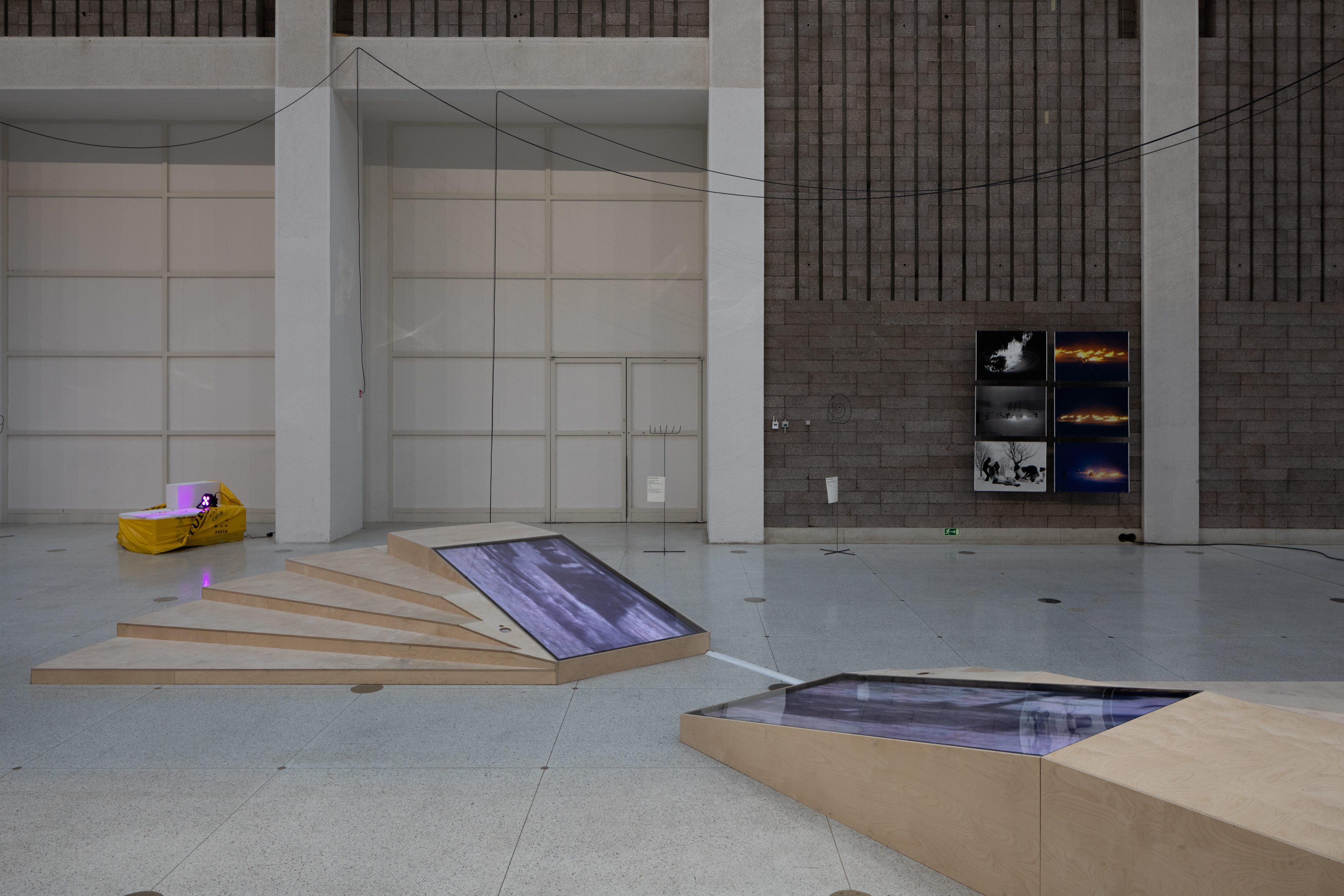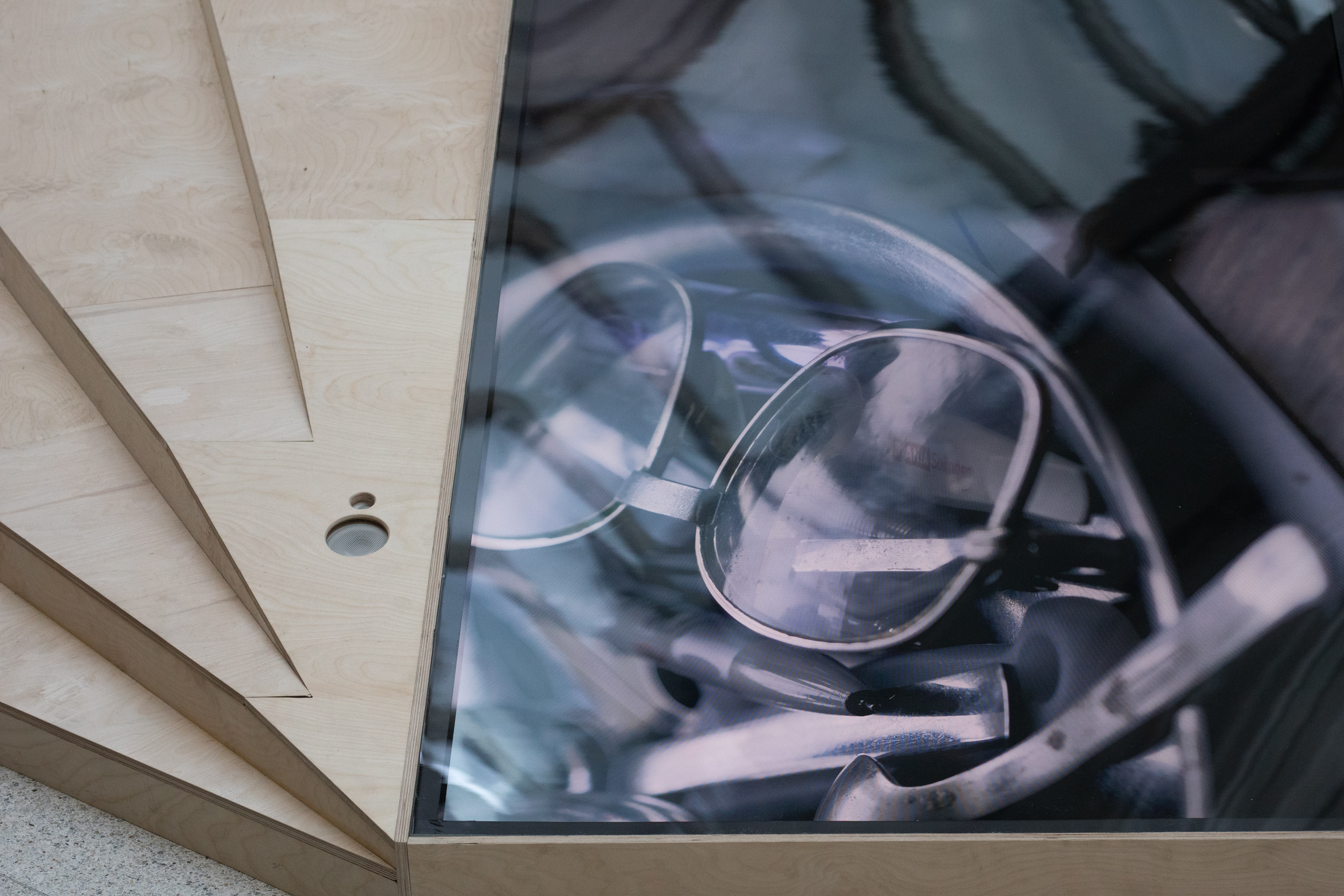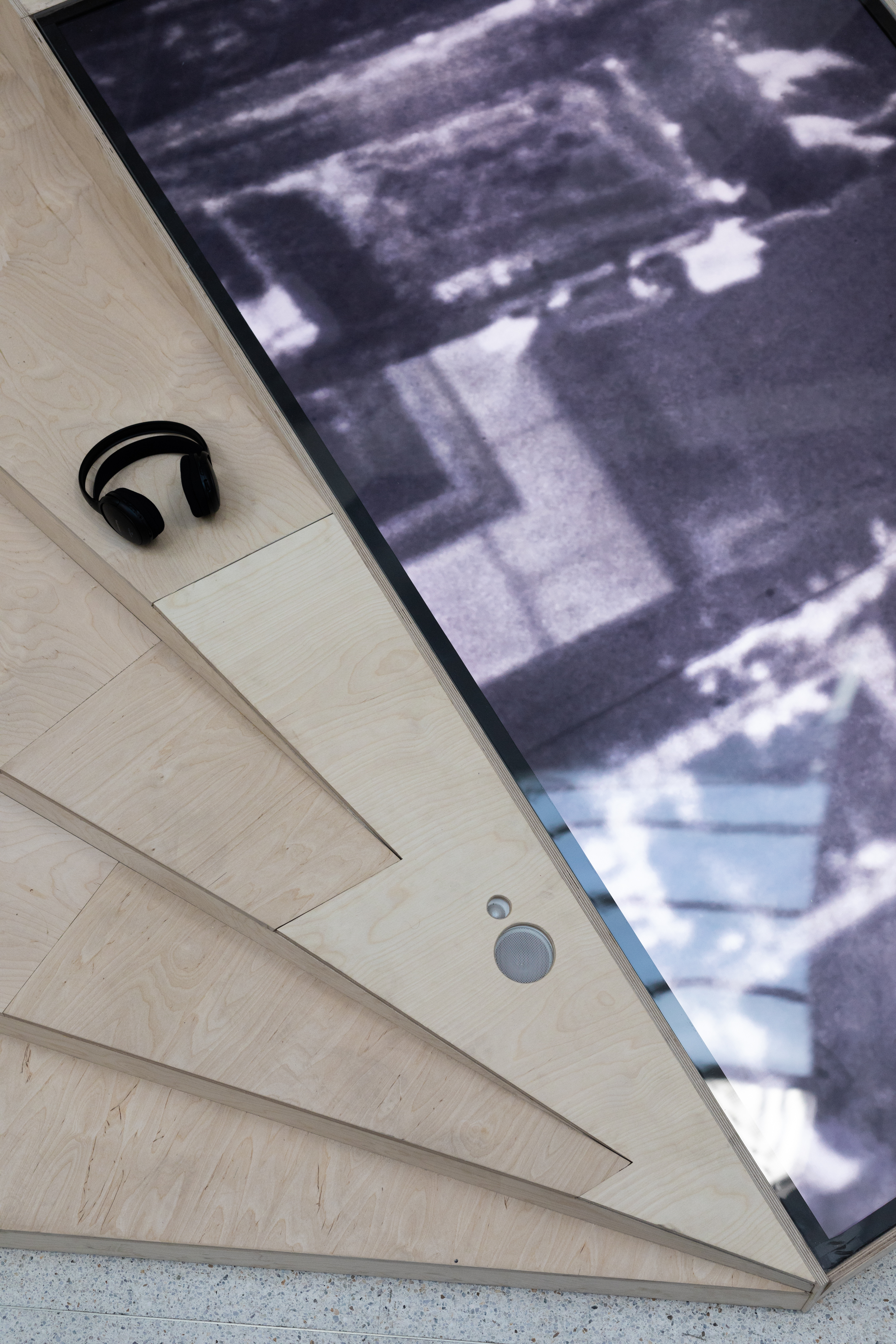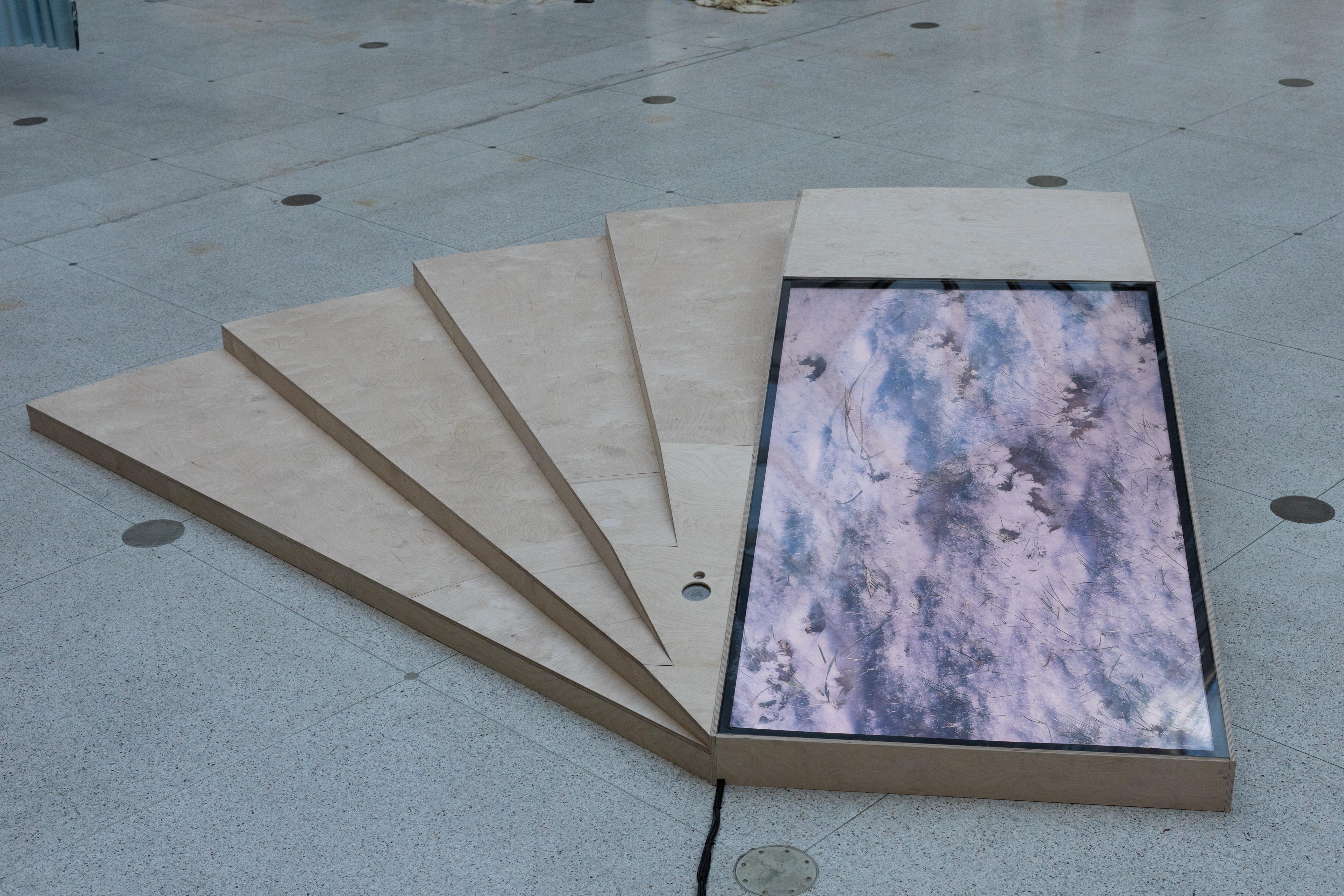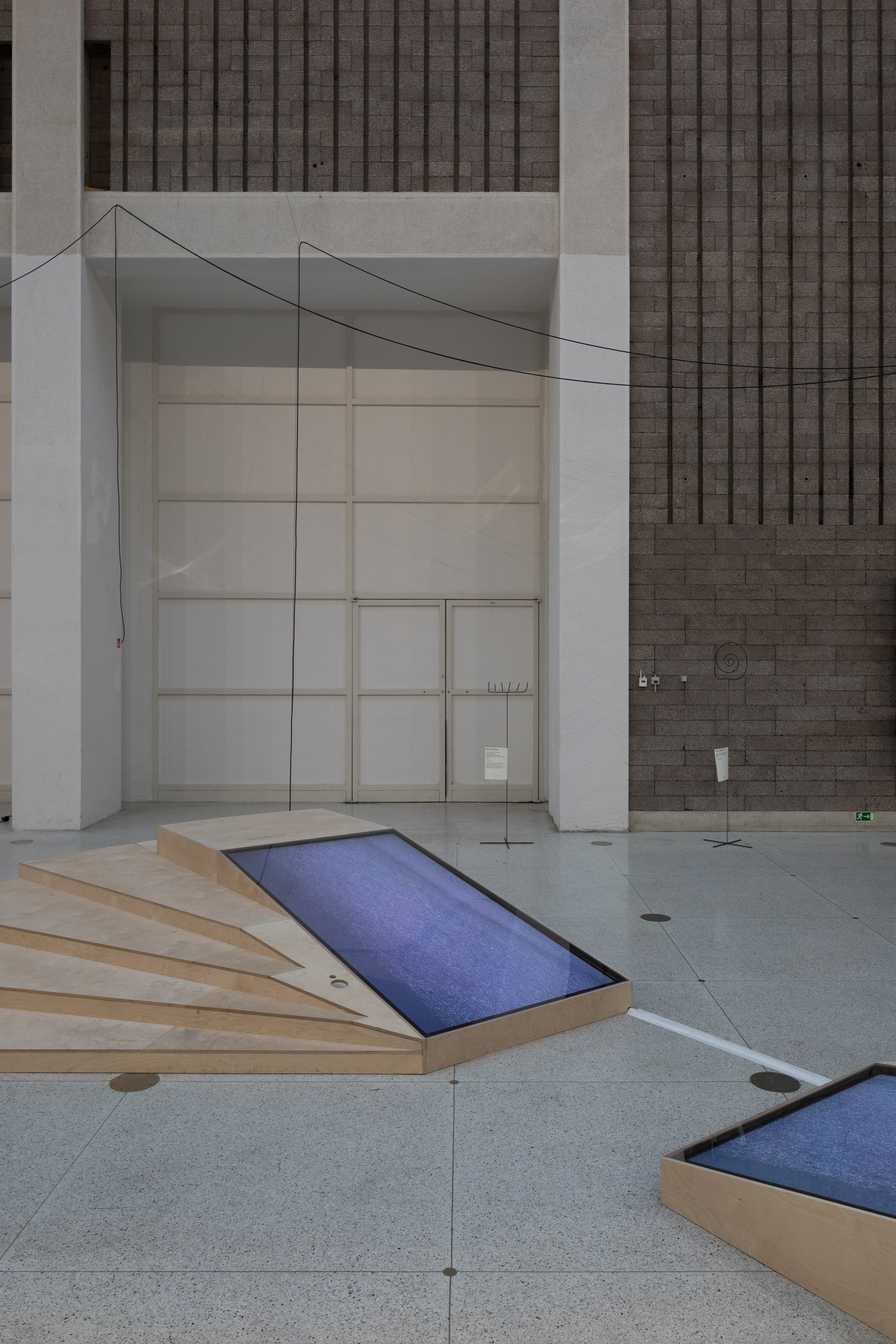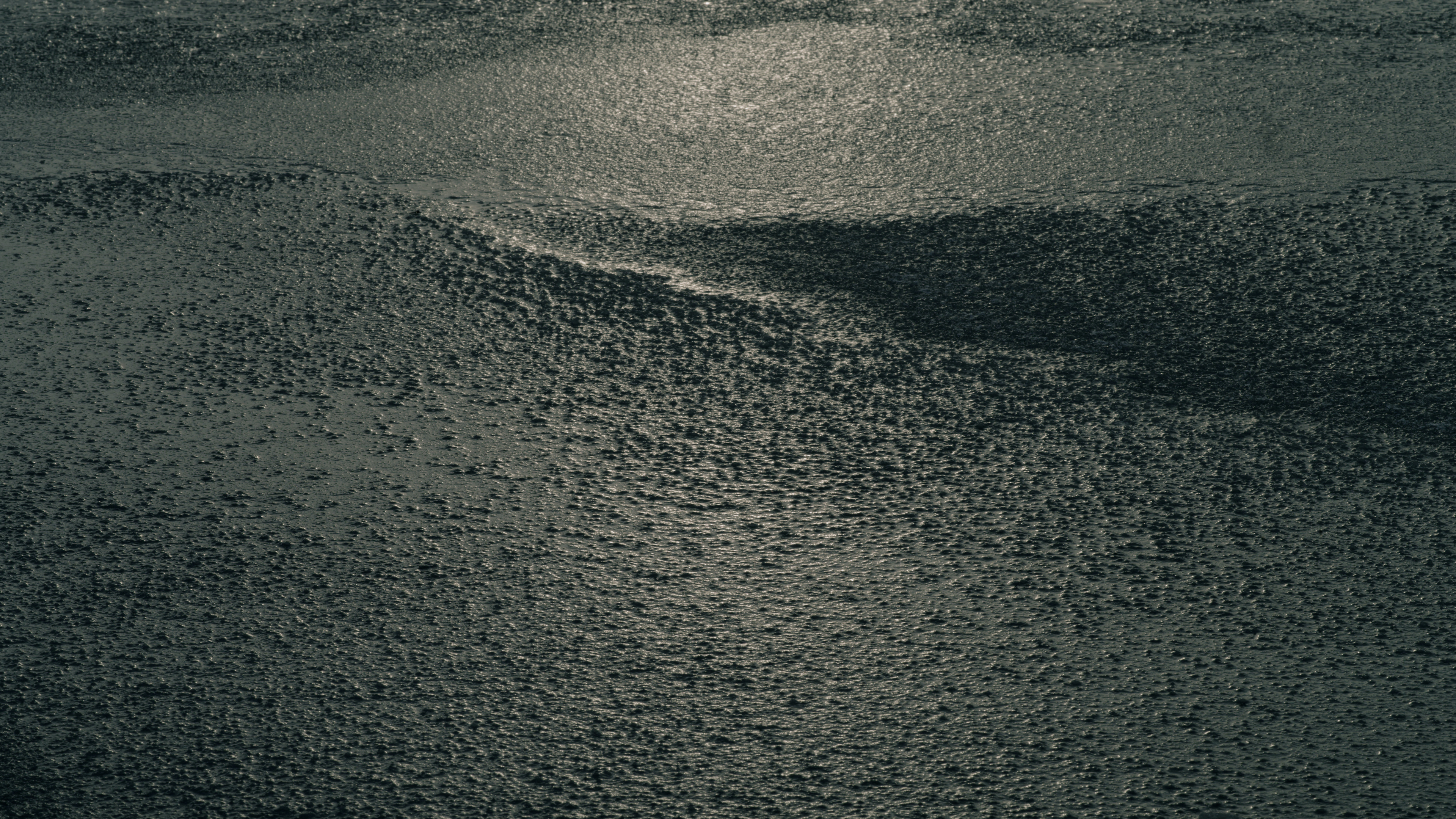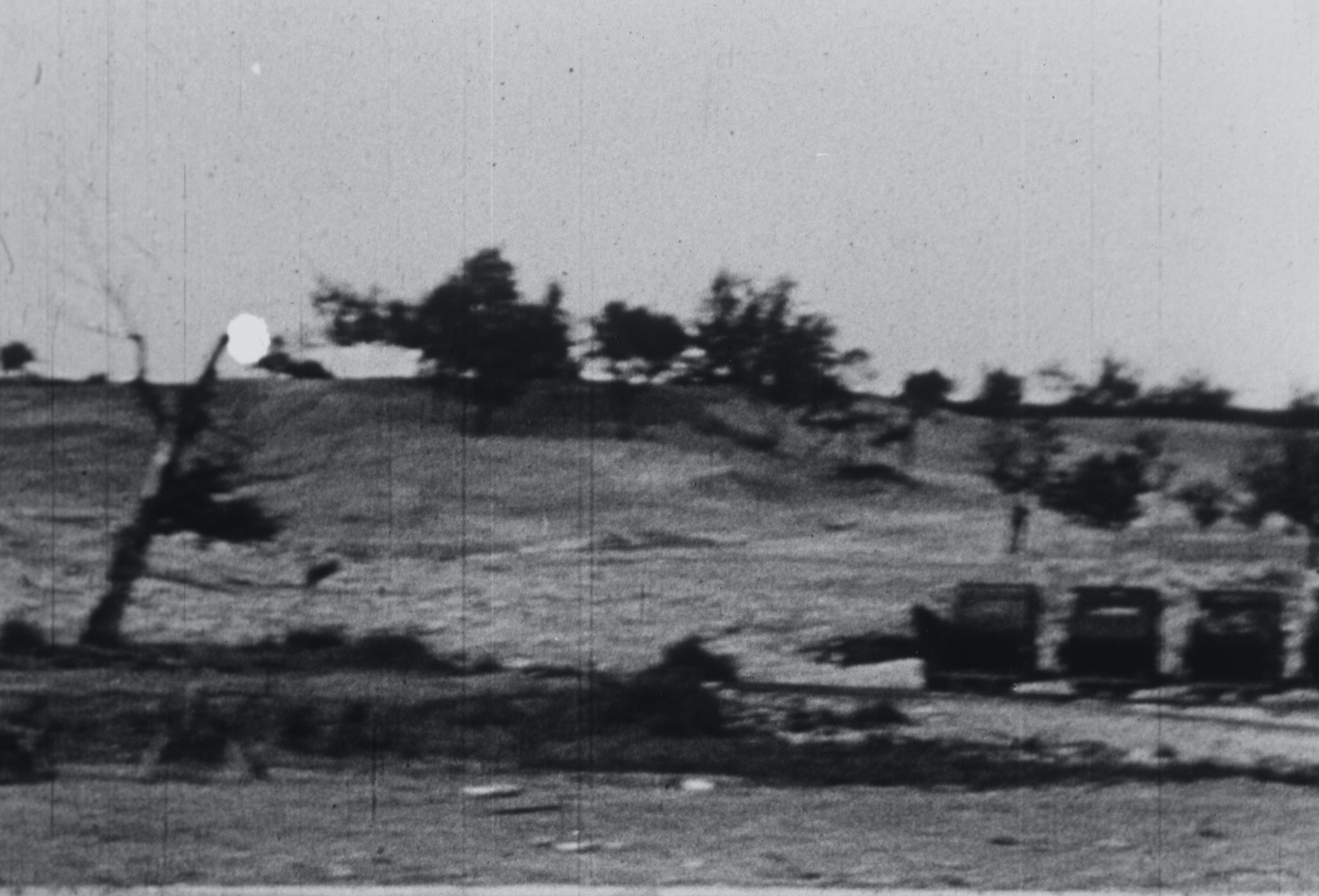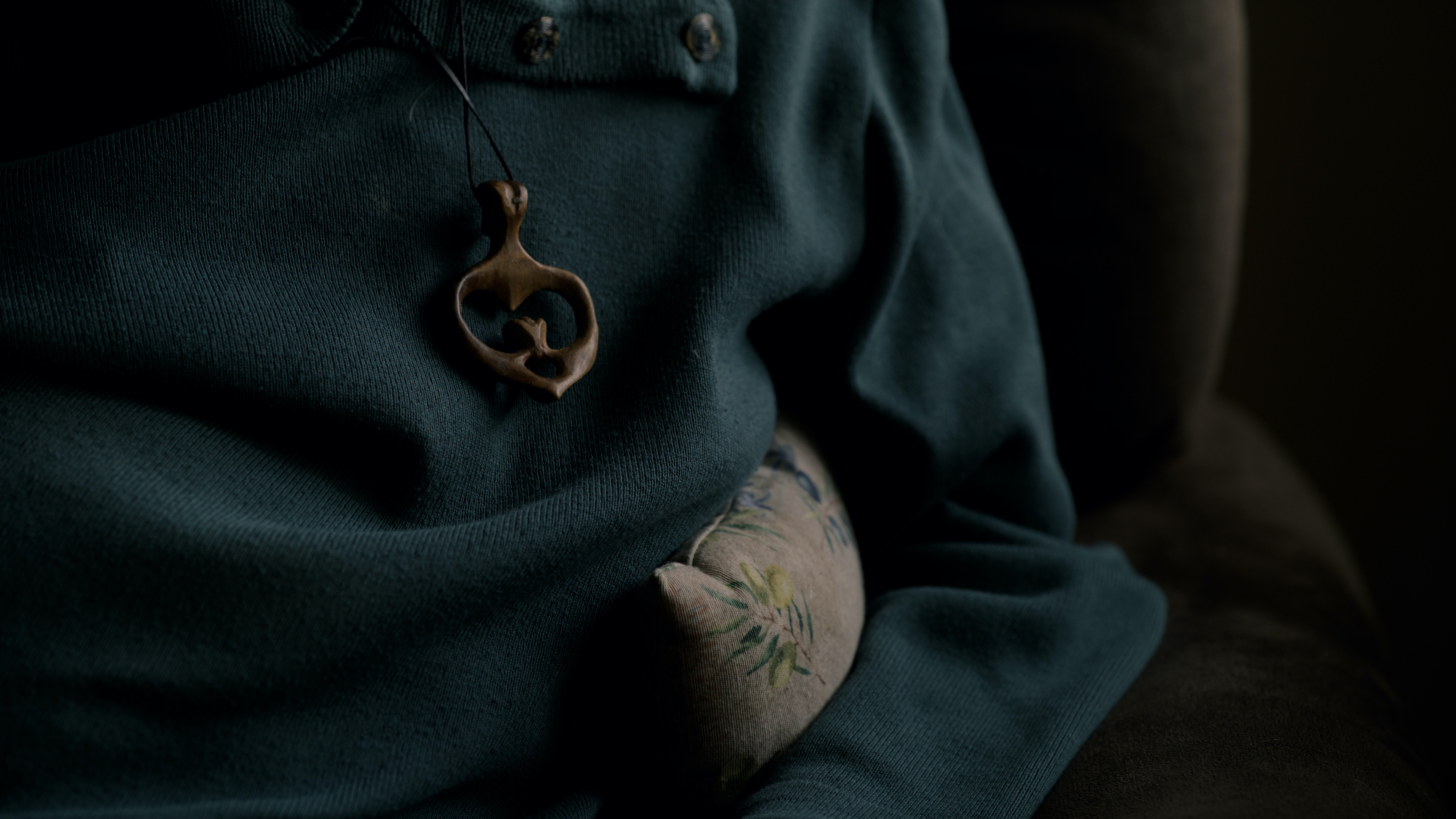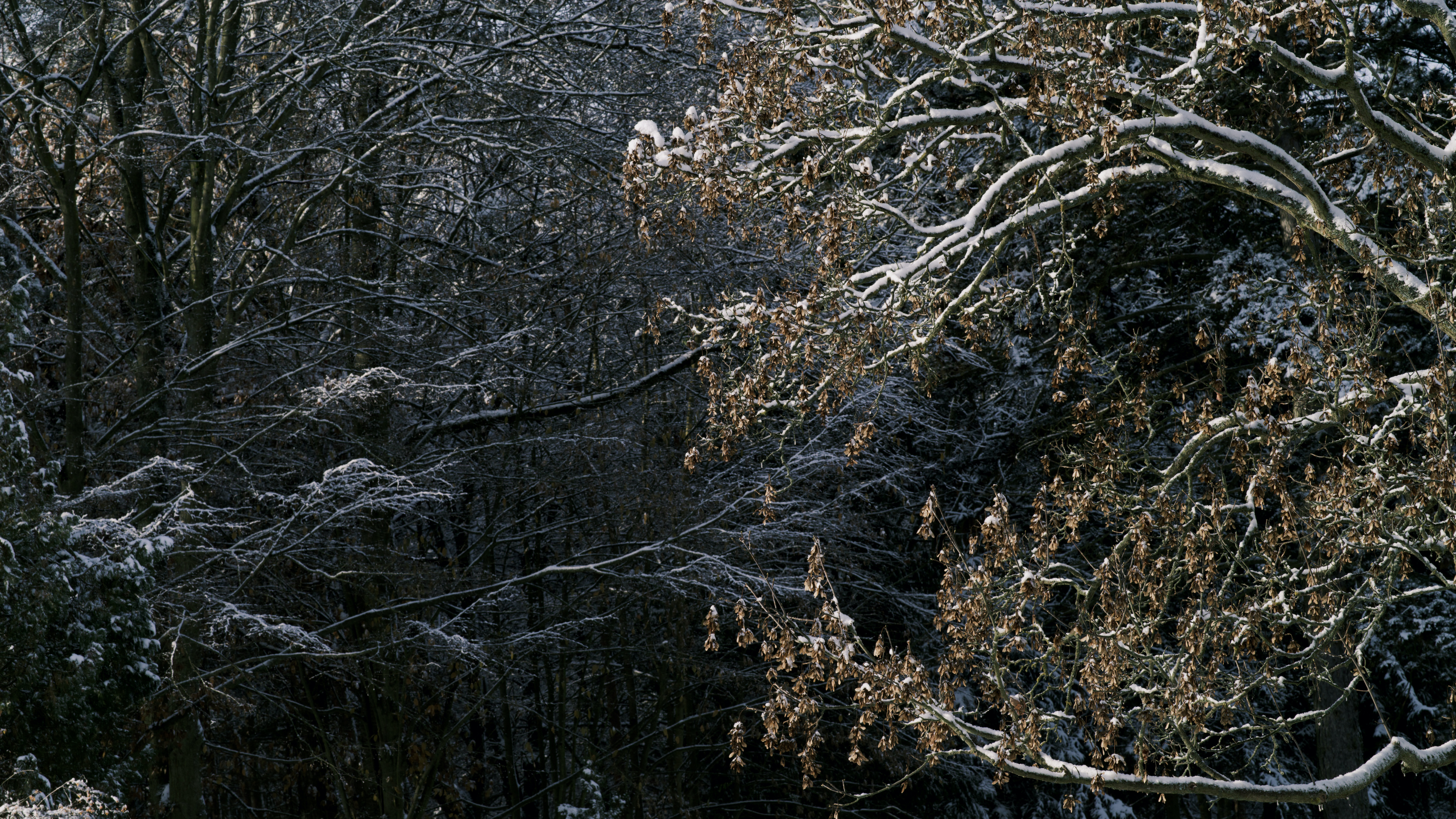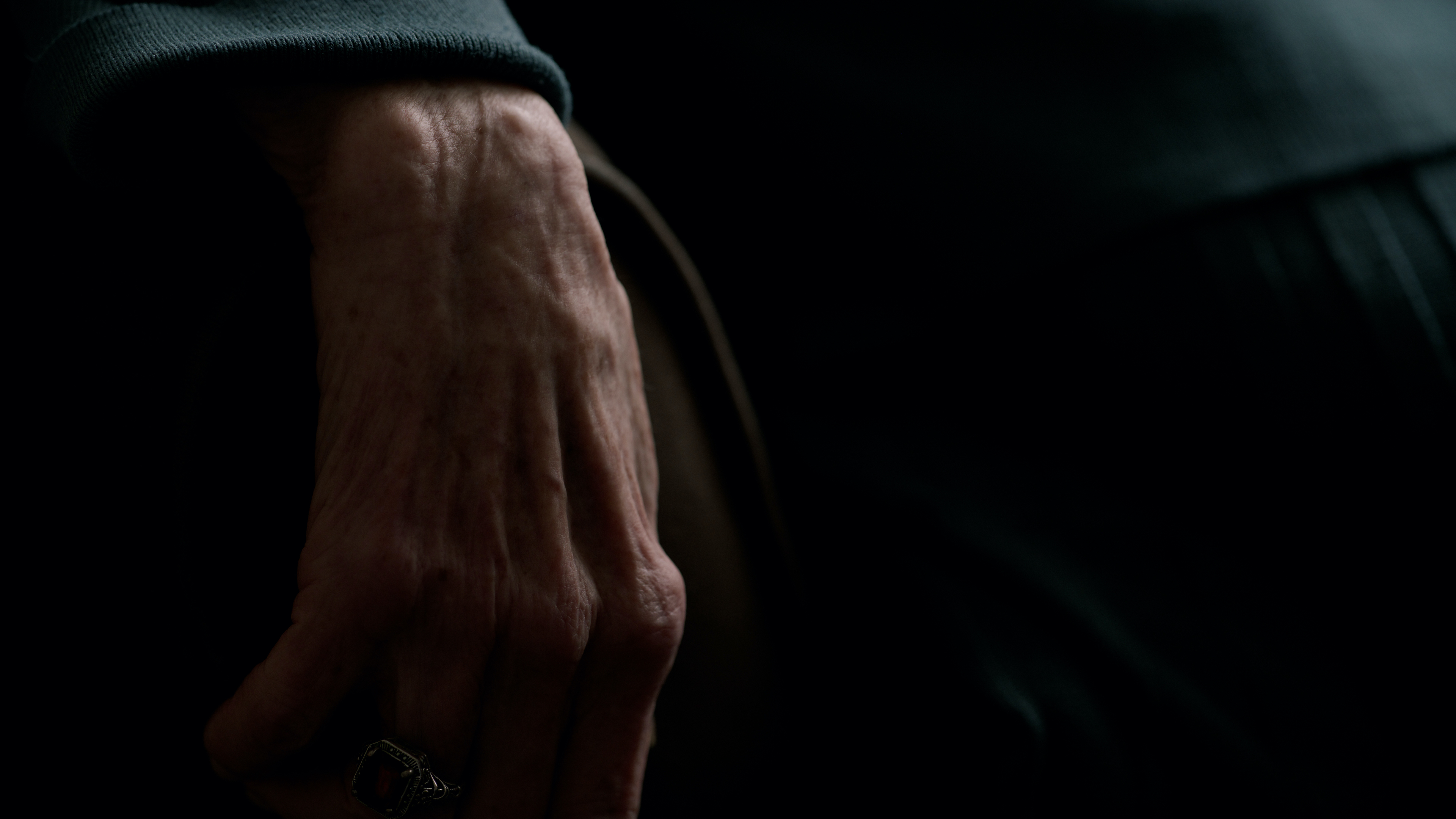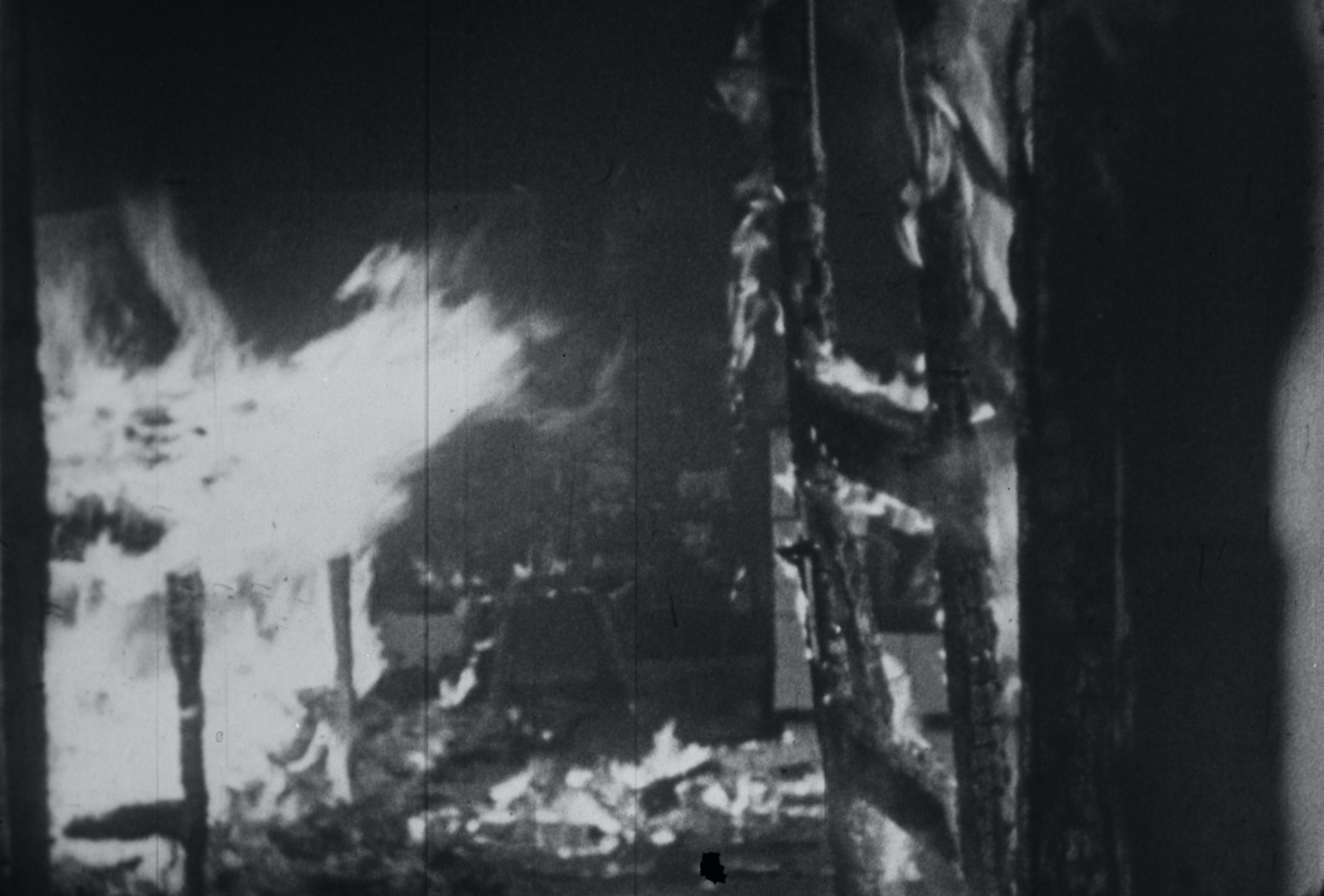Marta Popivoda
Work exhibited in the Trade Fair Palace:
What Lies Above Us in The Shadows Like a Black Cloud / 2024 / video sculpture (8 × 8 m) / 4K, color/ B&W, stereo sound (23 min loop), wood / editing: Jelena Maksimović / cinematography: Staša Bukumirović / sound design: Vladimir Živković / research assistant: Eva Slabá / camera assistant: Michaela Sidorová / translation: Ashley Davis / archival footage: ZF 0369 LIDICE, source: Národní filmový archiv, Prague / thanks: Katalin Erdődi, Kristina Tělupilová, Vojtěch Kyncl, Bohumil Melichar, Michal Simunek, Miloslav Vorlíček, Rike Frank, Christine A. Maier, İz Öztat, Matěj Strnad, Clarissa Thieme, Nela Pietrová / courtesy of the artist
Featuring Jaroslava Skleničková (b. 1926), the last living Lidice Woman and the voices of the feminist collective Kolektiv SdruŽeny, who recite a poem (respectively in Czech and English) written by the antifascist resistance fighter Anna Kvapilová in Ravensbrück concentration camp, where she was held prisoner, together with Jaroslava and the Lidice Women. Jaroslava recites the poem from memory (with slight changes), during an interview with Marta Popivoda in response to the question about her relation to the Lidice landscape.
Poem: Anna Kvápilová, Ach vidět zase… (Krajíček chleba / A Thin Slice of Bread, 1947, Brno)
* Commissioned by the Biennale Matter of Art Prague.
What Lies Above Us in The Shadows Like a Black Cloud, 2024, Biennale Matter of Art 2024, National Gallery Prague – Trade Fair Palace (c) Jonáš Verešpej
Stills from What Lies Above Us in The Shadows Like a Black Cloud, 2024, courtesy of Marta Popivoda
Not far from Prague lies the village of Lidice. During World War II, terrible violence happened there. People were wrongly accused of resisting the Nazis, so the Nazis destroyed the entire village as revenge. They not only took lives, but also spent 1.5 years changing the landscape to erase any sign of Lidice. After the war, archaeologists had to figure out where the village had once stood. Survivors returned “home” to a strange place. This empty landscape is now a memorial. It was left empty to honor and remember Lidice’s absence. Next to it, New Lidice was built for the survivors. The artist and filmmaker Marta Popivoda focuses on the landscape to understand Lidice’s history.
She sees the landscape as a living archive. Not just a passive setting for historical events, but an active storyteller that talks about human and non-human relations. The landscape holds clues to history, but also speaks to the present. It reveals the power relations and social structures that have shaped it and still shape it today. Marta wants us to remember that history and memory aren’t neutral. They are influenced by ideologies and changing social and political situations. Her video installation offers multiple perspectives on Lidice’s landscape and invites us to take different positions when watching. It looks like a sculpted, planned landscape, and thus connects to how Lidice has been transformed: first through violence, then reconstructed and re-imagined as a memorial site.
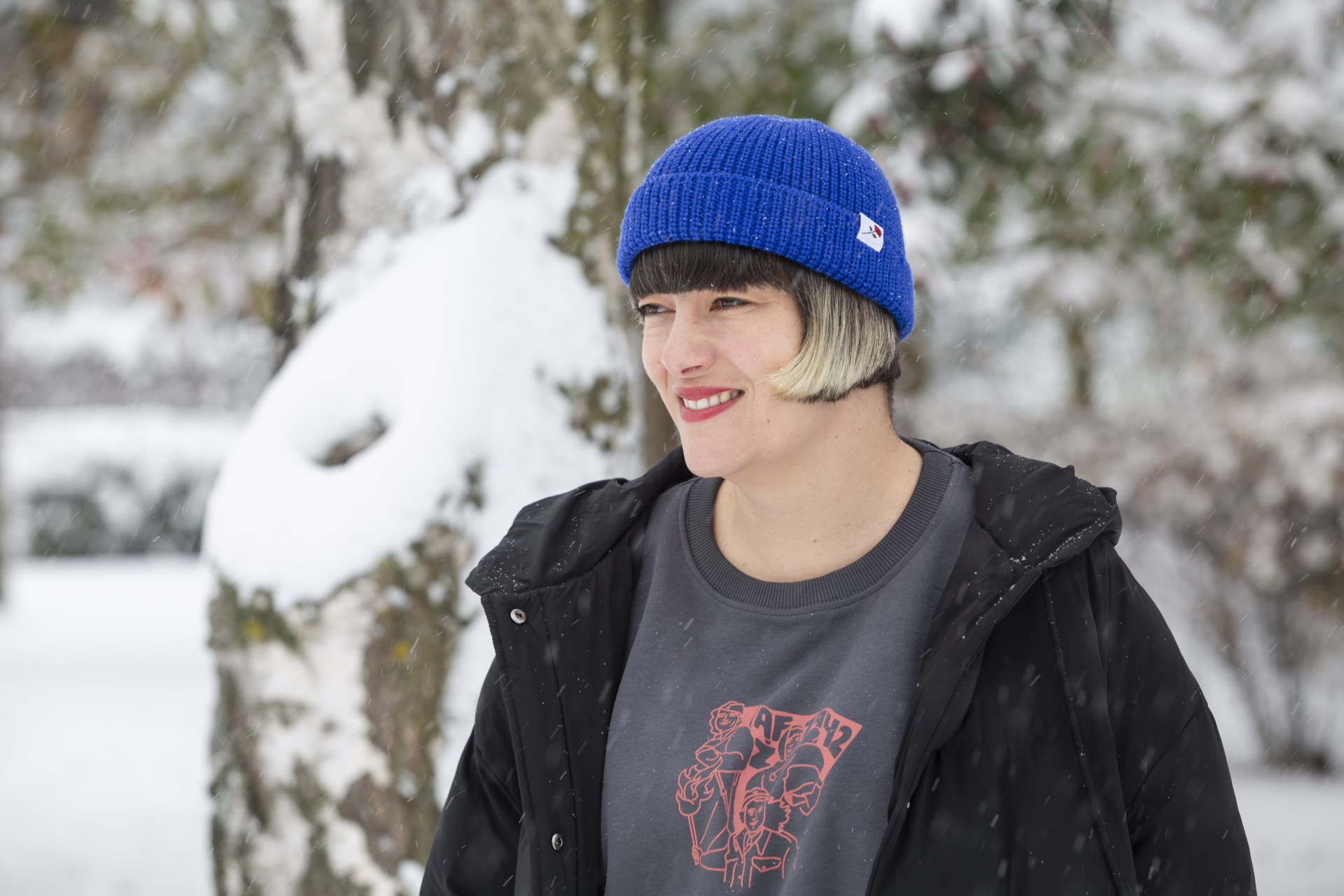
Marta Popivoda during her residency for the Biennale Matter of Art 2024 @Lidice Memorial, December 2023 (c) Tereza Havlínková
Marta Popivoda (lives between Berlin and Belgrade, b. Belgrade (Yugoslavia), 1982) is a filmmaker, artist, and researcher living and working between Berlin and Belgrade. The main concerns in her work are the tensions between memory, history, and ideology as well as the relations between collective and individual bodies. Popivoda approaches them from a feminist and queer perspective. In her recent work, she uses landscape dramaturgy, feminist storytelling, and radical slowness principles to produce verbal-images and scenes of (anti-fascist) memory.
Her first feature documentary, Yugoslavia, How Ideology Moved Our Collective Body, premiered at the 63rd Berlinale and was screened at many international film festivals. Her second feature documentary, Landscapes of Resistance (2021), premiered in the Tiger Competition of the 50th International Film Festival Rotterdam and was presented at more than 50 film festivals worldwide, winning more than ten awards. Popivoda's work has been featured in major art galleries and biennales, including the 12th Berlin Biennale, Manifesta 14, 59. Belgrade Biennale, Tate Modern London, MoMA New York, MAXXI Rome, M HKA Antwerp, Museum of Modern Art + MSUM Ljubljana, among others.
Popivoda cherishes collective practice in artmaking and research, and she was part of the collective Walking Theory for many years. Currently she often collaborates with theorist and dramaturge Ana Vujanović in the production of films, video installations, and performances.
